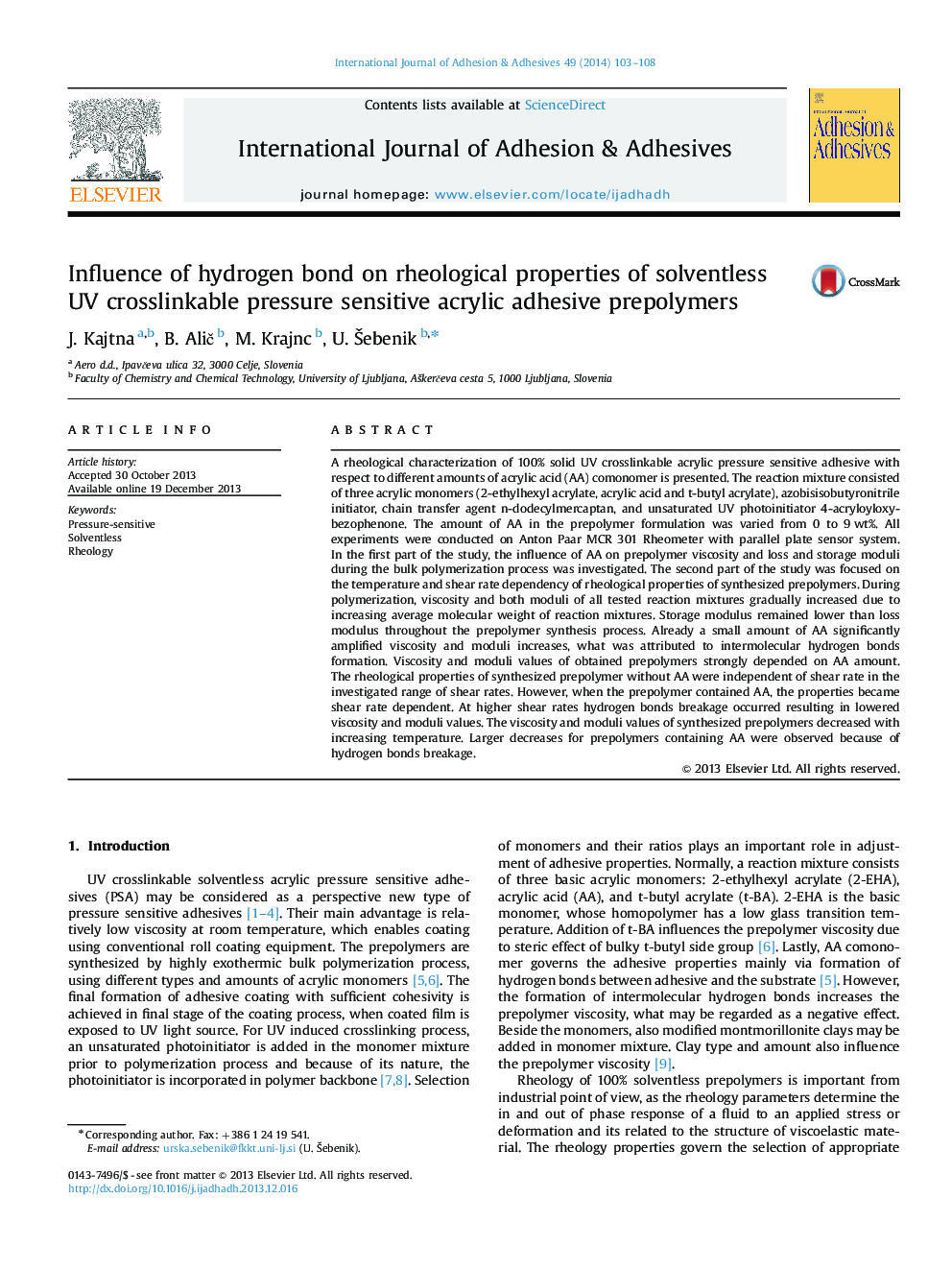| Article ID | Journal | Published Year | Pages | File Type |
|---|---|---|---|---|
| 779935 | International Journal of Adhesion and Adhesives | 2014 | 6 Pages |
A rheological characterization of 100% solid UV crosslinkable acrylic pressure sensitive adhesive with respect to different amounts of acrylic acid (AA) comonomer is presented. The reaction mixture consisted of three acrylic monomers (2-ethylhexyl acrylate, acrylic acid and t-butyl acrylate), azobisisobutyronitrile initiator, chain transfer agent n-dodecylmercaptan, and unsaturated UV photoinitiator 4-acryloyloxybezophenone. The amount of AA in the prepolymer formulation was varied from 0 to 9 wt%. All experiments were conducted on Anton Paar MCR 301 Rheometer with parallel plate sensor system. In the first part of the study, the influence of AA on prepolymer viscosity and loss and storage moduli during the bulk polymerization process was investigated. The second part of the study was focused on the temperature and shear rate dependency of rheological properties of synthesized prepolymers. During polymerization, viscosity and both moduli of all tested reaction mixtures gradually increased due to increasing average molecular weight of reaction mixtures. Storage modulus remained lower than loss modulus throughout the prepolymer synthesis process. Already a small amount of AA significantly amplified viscosity and moduli increases, what was attributed to intermolecular hydrogen bonds formation. Viscosity and moduli values of obtained prepolymers strongly depended on AA amount. The rheological properties of synthesized prepolymer without AA were independent of shear rate in the investigated range of shear rates. However, when the prepolymer contained AA, the properties became shear rate dependent. At higher shear rates hydrogen bonds breakage occurred resulting in lowered viscosity and moduli values. The viscosity and moduli values of synthesized prepolymers decreased with increasing temperature. Larger decreases for prepolymers containing AA were observed because of hydrogen bonds breakage.
